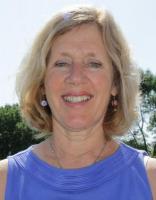Examining Faith Through Luke 8:18
Luke 8:18 intrigues me. In it, Jesus says, “Take care, then, how you hear. To anyone who has, more will be given, and from the one who has not, even what he seems to have will be taken away.” I find it interesting that Jesus did not specifically tell us what it is that anyone has or hasn’t. No; we as followers must figure it out.
After reading the passage a few times, I believe He is speaking of faith – that true faith that makes us willing to examine our lives; to honestly assess our character flaws, our sins, and our weaknesses, which interfere with us becoming the saints God intends us to be. We cannot attain that holy goal or even draw near to it without acknowledging that it is only through His grace that we have been blessed with the seed of faith, which was planted in each of us.
Once we realize we have been given this miraculous gift, it is our responsibility to nurture it. The Morning Offering prayer gives us hope of gaining more faith each day when it states that we should offer to God our “prayers, works, joys, and sufferings of this day.” We can attend daily and Sunday Mass, pray the rosary and do charitable works for others. All of that matters. However, if we do not recognize that it is only through God’s magnanimous love and grace that we are saved, what we seem to have may be taken from us. Because, although God is omnipotent, He allows us the free will to decide whether we will choose the path to holiness.
I have read that the greatest of the seven virtues is humility. One online search I made said that the Bible attributed that virtue to Jesus in 33 different passages, the same number as years of his life. I have also read that if we practice true humility, which St. Benedict defined as total obedience to God’s will, then we will possess all the other virtues as well. Mary is a model of it, as is Joseph and all of those men and women who achieved sainthood during their earthly lives, although many spent years working toward that goal.
In contrast, of the seven deadly sins, pride is the most detrimental. When we are proud (and I am not referring to pride in our work or our families) in the sense of denying our faults or convincing ourselves of our righteousness and rightfulness in judging others, we shut the door to growing stronger in our faith. It is where most of us stub our religious toes. Our pride causes us to conduct ourselves like the Pharisees, who spent their time “following the letter of the law” but missing out on what is most important for spiritual growth, “the Spirit of the law.”
I admire and respect Dorothy Day, and I pray that one day she will be canonized. She is a notable example of someone who shed her false pride. In doing so, she was able to acknowledge her sins (some grievous), repent of them and be forgiven. She humbly realized her dependence on God. I recommend her autobiography, “The Long Loneliness.” Once she started down the path to holiness, she encountered numerous obstacles, both intrinsic and extrinsic. However, she lived the spirit of the gospel and never lost her faith in God’s divine plan for her, even when that cast her in direct opposition to the government and some Catholic leaders.
Dorothy Day was a lost sheep who admitted her shortcomings and returned to the fold. Because of her willingness to humble herself, she made a profound difference in the world. In fact, Pope Francis named her one of the four most influential Americans alongside Abraham Lincoln, Thomas Merton, and Martin Luther King.
May this year find each of us striving to “have more” of what God wants to generously share with us. May we strive to be humble seekers of the truth through our own honest personal introspection, so that we can grow in God’s grace and love. Then like Dorothy Day and the saints before her, maybe we too can effect a positive difference in the world in which we live. Amen.



